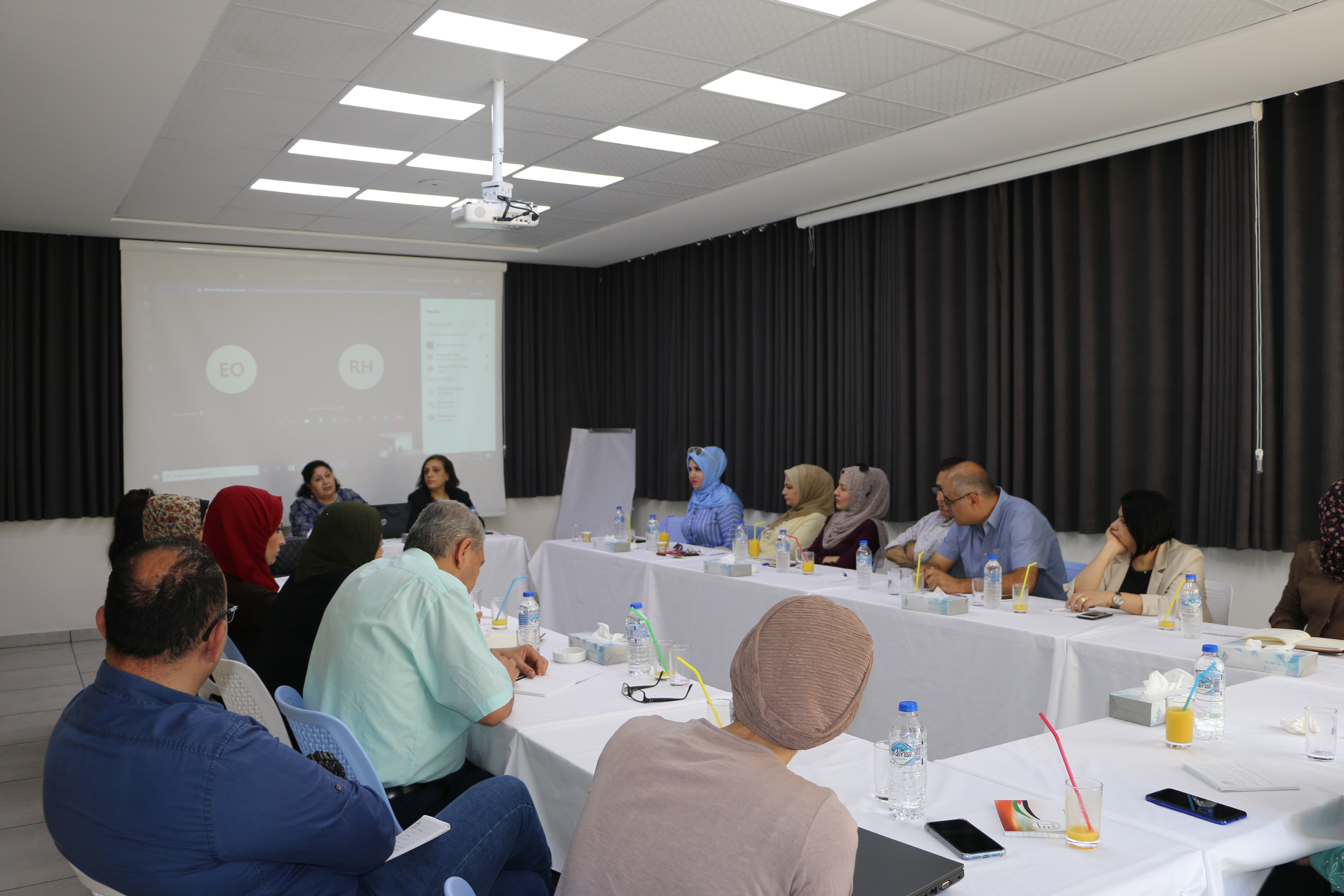Officials and activists in civil society and women's organizations called for adopting a modern family protection law that guarantees protection of members and punishment as well as rehabilitation of the perpetrator, and reparations for the victims.
In a workshop held by the Palestinian Network of NGOs (PNGO) entitled, “A societal vision towards the draft of family protection law ", the participants decided to hold additional workshops to put notes and amendments on the draft law.
The workshop moderated by Nadia Abu Nahleh, Women Sector Coordinator at PNGO and the Director of the Women's Affairs centre, who, with the help of the attendees, decided to work towards unifying the media discourse towards the law and its contents that guarantee protection for women and family. Law, according to them, should consider the observations made by women's institutions on the draft law of family protection.
Abu Nahleh said that the murders of women and other family members raised concern and fear amongst Palestinians, especially that there were no measures taken to end this situation.
The murders and violence in all its forms require a law to protect women and family members and to take strict formal measures as well, Abu Nahleh added. Civil society organizations and their institutions need to contribute to eliminating such problems.
Zainab Al-Ghunaimy, a lawyer, presented a paper that included a set of important notes on the draft law demanding amendments to 52 articles. These changes include adding the definitions to the alternative family, the offender, and the victim, the competent judge, and the competent court. The additions are based on human rights agreements, the Convention against All Forms of Discrimination against Women, and the International Convention on the Rights of the Child.
Al- Ghunaimy called for adopting the definitions of the Palestinian Central Bureau of Statistics for family violence. Participating in an act or refraining from it in a way that results in physical or psychological harm is a form of family violence alongside physical violence that appears in any form and is inflicted by a family member.
Furthermore, Psychological, or moral violence is added to the list in which it is practiced by a family member over other members by placing psychological pressure or practicing ill-treatment, recklessness, contempt, and denial of emotions.
Furthermore, sexual harassment is represented in harassing others, whether through contact, papers, e-writing, or words, Al-Ghunaimy pointed, or by facial expressions or touching. Such acts damage one's dignity and offend their modesty, which is very similar to sexual violence and coercive sexual behaviour through threats, intimidation, or the use of physical force.
Moreover, she drew attention to many other issues such as economic violence, forced labor, work prohibition, control of work returns, control of property and inheritance rights, and denial of basic rights such as shelter, food, drink, and clothing.
Therefore, Al-Ghunaimy demanded the existence of articles or items related to the protection of domestic violence victims' rights, the development of measures to protect them, punishing anyone who commits any form of violence, and the rehabilitating aggressors, to ensure their correct reintegration into society.
In the same context, Al-Ghunaimy called for adjustments related to family members' laws, whether blood members or in-laws to the fourth degree in a way these laws apply to workers in nursing homes or in their employers.
The amendments should also reach the tasks of the protection counsellor, she added, to receive reports and complaints about any domestic violence incident. With the right coordination with the police, they can transfer the victims (i.e. a family member) to the nearest hospital or health centre to provide the necessary treatment for him\her, evaluate safety measures, open a file for the victim, conduct a preliminary interview and ensure that he\she respects the requirements of confidentiality and privacy.
These alterations are necessary when related to prosecution and court in terms of court recommendation to use rehabilitation means for the victims or the aggressors, and to provide counselling and psychological and social support services to the victim or any of his family members with specialized centers, Al-Ghunaimy stated.
It is also vital to formalize and organize all the interventions taken by the protection advisor with a documented report, as well as submitting the recommendation of the prosecution or the judge the order of protection to family prosecution, and a recommendation to judge to issue a community service order against the aggressor.
Al-Ghunaimy noted the importance of including articles requiring medical, educational, social or legal service providers to explain to the victim their rights and ensuring their safety to agree to inform the police or the prosecution of the crime against them and to punish those who fail to report such crimes with jail time for a period of no less than three months and not more than a year if the crime resulted in severe bodily harm.
Audiovisual recordings of the victim considered as evidence, she considered, taking into account the provisions of the applicable criminal procedures law, and not to provide scientific research institutions or government institutions with any documents, information or pictures except after a final ruling has been made, with written consent from the victim.
Finally, Al-Ghunaimy called for changes that increase the penalties for sexual assault, rape, and attempted rape as well as spouses physically abuse which causes bodily harm. This also includes internet trolls and offenders who publish immoral content related to any family member.
Afterwards, the participants submitted observations and suggestions for amendments that should be made to the draft law before its approval.

